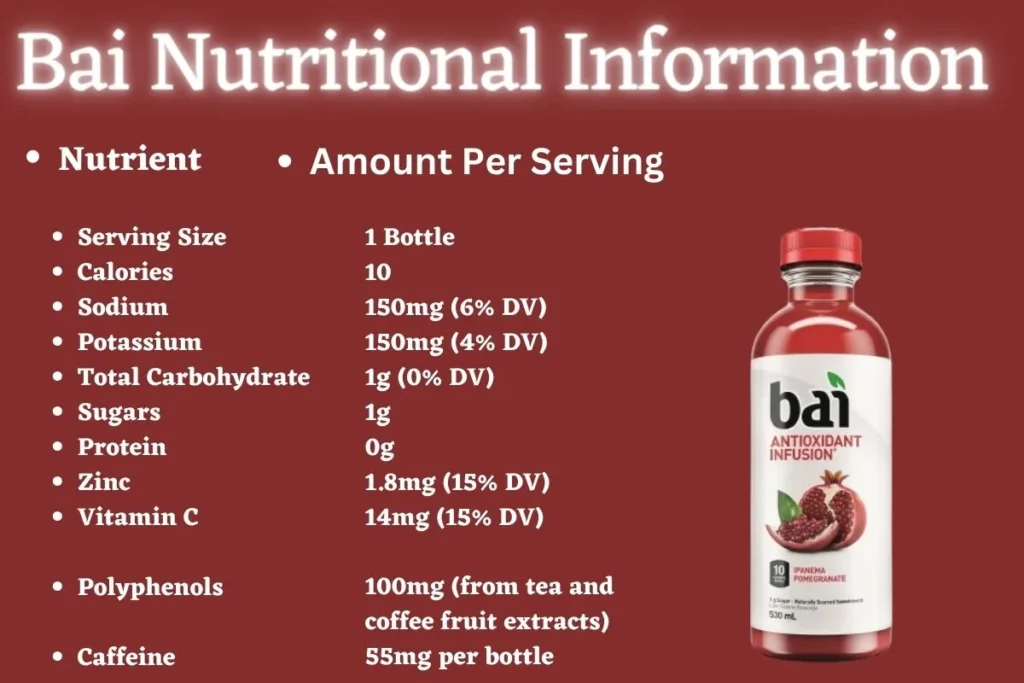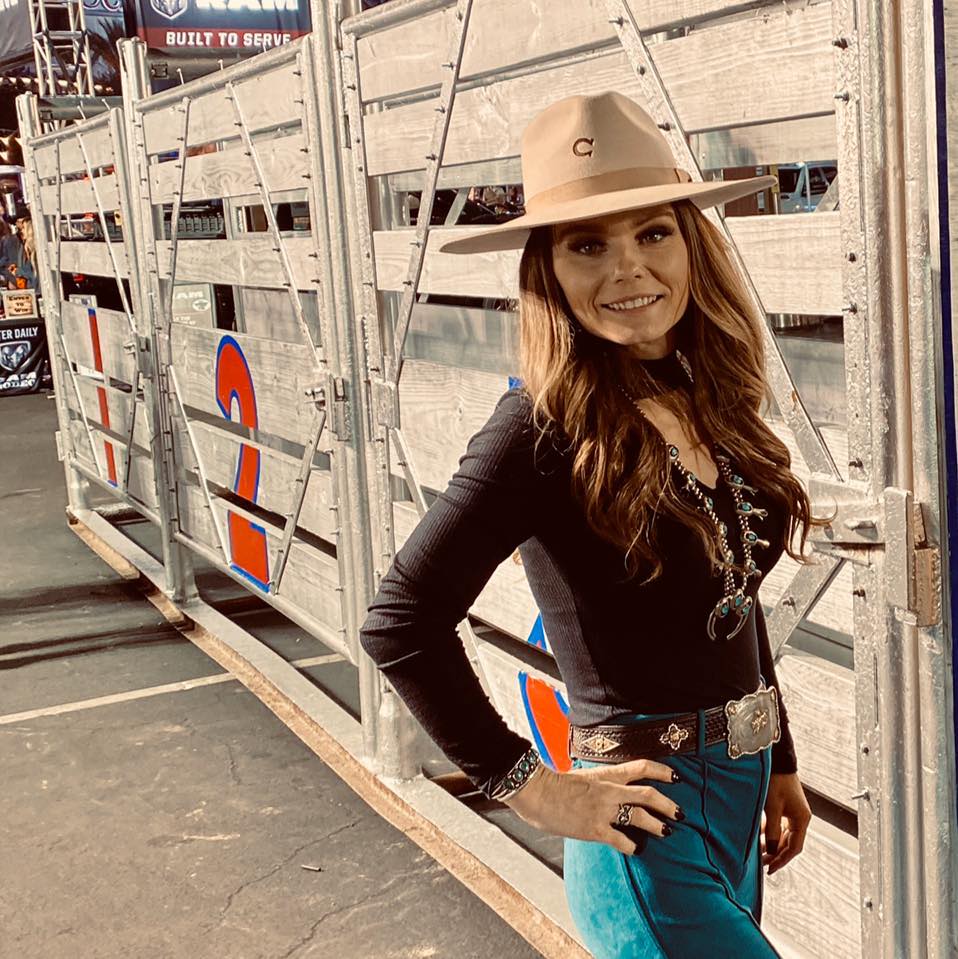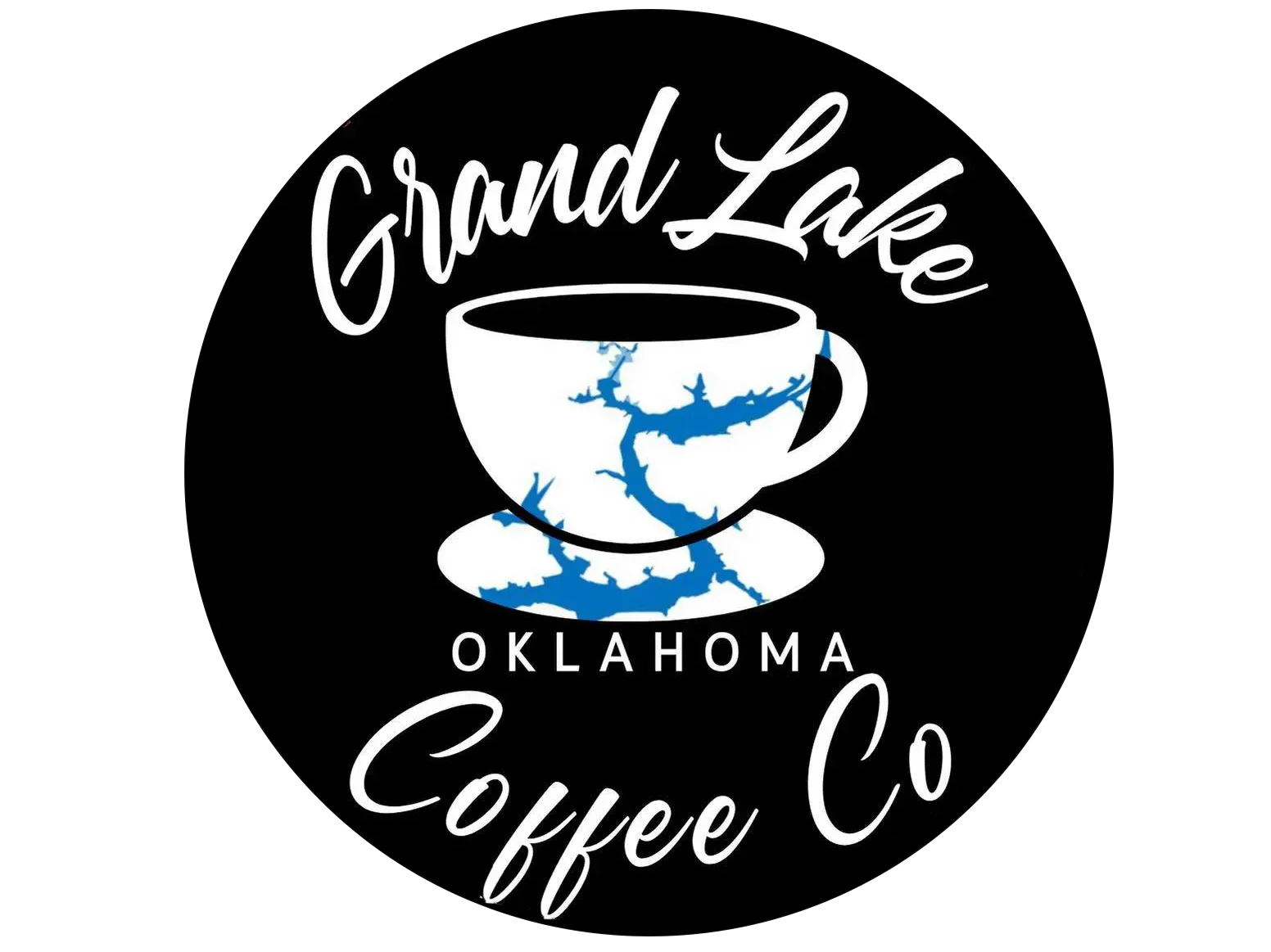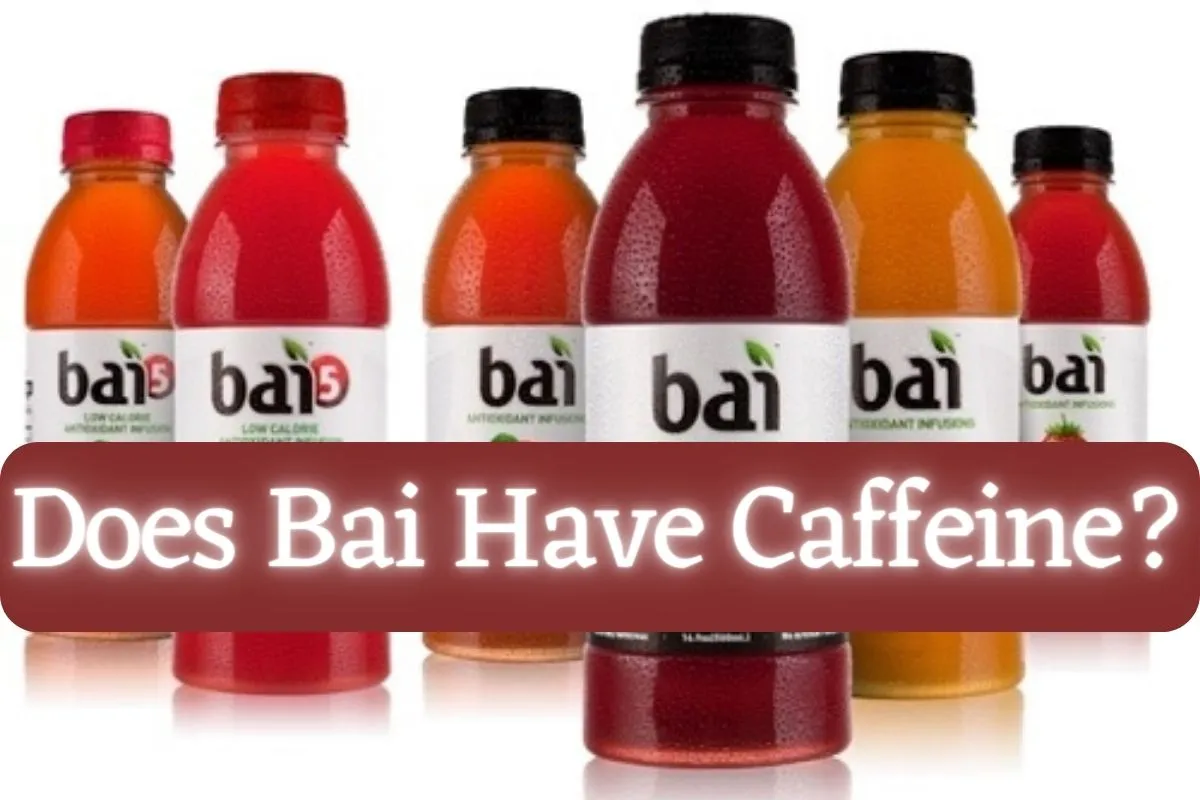While Bai beverages have become a popular choice for their vibrant flavors and focus on antioxidants, you might wonder about Does Bai Have Caffeine. After all, the brand’s innovative use of coffee fruit as a key ingredient could make you question whether your favorite Bai drink also gives you an energy boost.
Let’s explore the caffeine question surrounding Bai drinks.
Importance of Knowing Caffeine Content in Bai
Knowing the caffeine content in Bai is crucial, especially since these beverages are consumed widely across the nation and even internationally.
While Bai drinks offer a refreshing flavor profile and a boost of antioxidants, understanding their caffeine levels empowers consumers to make informed choices about their beverage intake.
Factors like the specific Bai flavor and the amount of tea extract used can directly influence the caffeine content. Some misconceptions exist about Bai’s caffeine levels – consumers may assume that the presence of coffeefruit means high caffeine, yet many Bai drinks have moderate caffeine similar to a cup of green tea.
Certain individuals might need to be mindful of their Bai consumption or avoid it altogether. People sensitive to caffeine, those with anxiety disorders, pregnant women, and children should be aware of how much caffeine they’re getting from these beverages.
Consulting with a healthcare professional would be the safest approach in these cases to determine individual tolerance and any potential risks associated with Bai consumption.
Does Bai Have Caffeine?
Yes, Bai drinks have caffeine. While the exact amount varies between flavors, they generally have around 55 to 110mg of caffeine per bottle.
The drinks get their caffeine from tea extract, providing a natural energy boost. While it’s not ideal for people who are highly sensitive to caffeine or avoid it entirely, the amount in Bai drinks is considered moderate compared to other caffeinated beverages.
To find out the exact caffeine content of your favorite Bai flavor, it’s best to check the ingredients list that will clearly state the amount of caffeine per serving.
Bai Variants and their Caffeine Content
Bai’s variety of beverages offer a range of flavors and benefits, catering to a wide array of tastes and preferences. These include:
Bai It’s WonderWater Variants:
Each bottle of Bai It’s WonderWater contains 55mg of caffeine, offering a refreshing taste with the added benefit of a caffeine boost comparable to a cup of green tea. These drinks are antioxidant-infused, free from artificial sweeteners, and contain electrolytes, making them a hydrating choice with only 10 calories and 1 gram of sugar per bottle. It is available in the following flavors:
- Raspberry Lemon Lime
- Zambia Bing Cherry
- Molokai Coconut
- Brasilia Blueberry
- Pilavo Pineapple Mango
- Kula Watermelon
- Puna Coconut Pineapple
- São Paulo Strawberry Lemonade
- Madagascar Coconut Mango
- Kupang Strawberry Kiwi
- Costa Rica Clementine
- Malawi Mango
Bai Boost:
The Bai Boost line doubles the caffeine content to 110mg per bottle. This line is designed to provide an even bigger energy lift while maintaining the health-conscious ingredients Bai is known for.
- Buka Black Raspberry
- Cartago Pineapple Passion Fruit
- Watamu Strawberry Watermelon
Bai Supertea:
For tea lovers, Bai offers the Supertea line with each flavor containing 55mg of caffeine per bottle. This line combines the antioxidant benefits of tea with Bai’s commitment to low-calorie, deliciously flavored beverages.
- Nariño Peach Tea
- Rio Raspberry Tea
- Socorro Sweet Tea
- Tanzania Lemon Tea
List of Ingredients in Bai
Bai’s approach to ingredients focuses on a combination of natural sources and functional additives. Here’s a breakdown of the primary categories of ingredients you’ll encounter in their beverages:
- The Foundation: Filtered water serves as the primary base of Bai drinks, providing a neutral canvas for the flavors to shine. Erythritol and stevia leaf extract work in tandem to deliver sweetness. Erythritol offers a sugar-like texture and sweetness with minimal calories, while stevia provides intense sweetness without calories or impacting blood sugar levels.
- Flavor Enhancers: Citric acid, a common citrus-derived ingredient, adds a pleasant tang and helps maintain freshness. Sodium citrate and potassium citrate further contribute to flavor balance and preservation.
- Functional Extracts: Coffeefruit extract is the star ingredient responsible for Bai’s caffeine content. This unique extract from the outer layer of the coffee bean provides a natural boost of energy. Ascorbic acid, simply known as vitamin C, serves as a potent antioxidant.
- The Flavor Difference: This is where Bai gets creative! Each flavor features a unique blend of ingredients. You’ll find small amounts of concentrated fruit juices (think peach, orange, pomegranate) for sweetness and authentic flavor profiles. Vegetable juice concentrates and beta carotene serve a purely visual role, providing those vibrant colors associated with specific Bai varieties.
- The Extras: Tea extract appears in most flavors, contributing to both the subtle tea-like taste and the caffeine content. Malic acid, a slightly tart acid, further enhances the natural flavor profiles.
Bai Nutritional Information

Bai® Raspberry Lemon Lime™ offers a refreshing, low-calorie beverage with a boost of vitamin C and zinc. Each bottle contains only 10 calories, 1 gram of total carbohydrates, and 1 gram of sugar. It’s also a source of potassium and provides 55mg of caffeine for a natural energy lift.
While you’ll get a dose of antioxidants from the tea and coffeefruit extract, keep in mind that the nutritional information will differ slightly between Bai flavors due to variations in the fruit juices and other ingredients used. Always check the label for the most accurate nutritional information for your chosen flavor.
| Nutrient | Amount Per Serving |
| Serving Size | 1 Bottle |
| Calories | 10 |
| Sodium | 150mg (6% DV) |
| Potassium | 150mg (4% DV) |
| Total Carbohydrate | 1g (0% DV) |
| Sugars | 1g |
| Protein | 0g |
| Zinc | 1.8mg (15% DV) |
| Vitamin C | 14mg (15% DV) |
| Polyphenols | 100mg (from tea and coffeefruit extracts) |
| Caffeine | 55mg per bottle |
Read Also:
Alternatives to Bai and their Caffeine Content
Here are some alternatives to Bai beverages:
Hint Water:
If you’re looking for pure, refreshing hydration without the sugar or caffeine, Hint Water is an excellent choice. They infuse their water with natural fruit essences for a subtle yet flavorful experience, offering a delicious and revitalizing way to stay hydrated.
Sparkling Ice:
These flavored sparkling waters provide a bit more excitement with their light fizz and variety of flavors. They’re sweetened with artificial sweeteners, making them calorie-free, and also contain vitamins and antioxidants for an added boost.
La Croix/Bubly:
Incredibly popular for their fun and fruity flavors, these sparkling water brands are ideal for those who crave a bubbly, caffeine-free pick-me-up. Opt for a flavor that excites your tastebuds!
DIY Flavored Waters:
Get creative at home by infusing water with your favorite fruits, herbs, and spices. Experiment with combinations like cucumber and mint, watermelon and basil, or citrus fruits and ginger for personalized, caffeine-free refreshments.
Teavana Sparkling Craft Iced Teas:
For tea lovers, these beverages offer a satisfying combination of real brewed tea, fruit flavors, and a touch of fizz. Caffeine levels vary based on the tea used (black, green, white), but they generally provide a milder energy boost than a standard cup of coffee.
Hibiscus Tea:
This vibrant tea boasts a tart, cranberry-like flavor and can be enjoyed hot or iced. Hibiscus tea is caffeine-free but provides a beautiful color and invigorating flavor that makes it a satisfying alternative to Bai. You can sweeten it with a touch of honey or agave nectar.
Sound Sparkling Organic Yerba Mate:
These beverages offer a natural source of caffeine derived from yerba mate. With light carbonation and flavors ranging from botanical infusions to citrus blends, they provide a moderate energy lift.
Propel Electrolyte Water:
If replenishing electrolytes is a priority, Propel provides several fruit-flavored options with no added sugar. Be aware that some varieties of Propel do contain caffeine, so always check the label carefully for the specific product.
Vitamin Water Zero:
Sweetened with artificial sweeteners, these drinks boast zero calories and a range of fruity flavors. However, keep in mind that some Vitamin Water Zero variations include caffeine, so check those labels carefully to ensure you’re choosing the right option for your needs.
Zevia:
This brand offers a vast array of soda alternatives sweetened with stevia and naturally flavored for zero-calorie enjoyment. Zevia uses caffeine from tea extract, resulting in varying caffeine content across their different flavors.
| Alternatives | Caffeine Content |
| Hint Water | Caffeine-free |
| Sparkling Ice | Some varieties may contain caffeine, check label |
| La Croix/Bubly | Caffeine-free |
| DIY Flavored Waters | Caffeine-free |
| Teavana Sparkling Craft Iced Teas | Contains caffeine (amount varies by tea type) |
| Hibiscus Tea | Caffeine-free |
| Sound Sparkling Organic Yerba Mate | Contains natural caffeine |
| Propel Electrolyte Water | Some varieties contain caffeine, check label |
| Vitamin Water Zero | Some varieties contain caffeine, check label |
| Zevia | Contains caffeine (amount varies across flavors) |
Read Also:
Recommended Daily Intake of Bai
To understand Bai’s caffeine content, it’s important to compare it with the Recommended Daily Intake (RDI). The FDA suggests a maximum of 400mg of caffeine per day for healthy adults. This means that one bottle of Bai It’s WonderWater or Bai Supertea provides about 14% of the RDI, while a bottle of Bai Boost represents around 27.5% of the recommended daily limit.
It’s worth noting that caffeine sensitivity varies from person to person. If you find yourself particularly sensitive to caffeine, Bai’s standard beverages may still feel like a significant boost. Always listen to your body and adjust your intake accordingly. For those who regularly consume higher levels of caffeine, Bai’s offerings might feel relatively mild.
Conclusion
Does Bai Have Caffeine? Bai drinks do indeed contain caffeine. While the amount is less than what you’d find in a typical cup of coffee, it’s still significant enough to consider if you’re watching your caffeine intake. Their standard flavors offer a moderate energy boost, while the Bai Boost line packs a stronger punch.
If you’re looking for a refreshing, low-calorie beverage with a touch of natural caffeine, Bai can be a tasty option. However, if you’re caffeine-sensitive or avoid caffeine altogether, there are a plethora of delicious and revitalizing caffeine-free alternatives available!
Frequently Asked Questions
Q1. Is drinking Bai good for you?
Bai beverages offer a lower-calorie, lower-sugar alternative to traditional sodas and juices. They provide some vitamins and antioxidants, plus a dose of caffeine for an energy lift. However, they shouldn’t be considered a primary source of nutrition, and choosing water for hydration is always the best bet.
Q2. Are Bai drinks sugar-free?
Bai primarily uses the natural sweetener stevia leaf extract and a small amount of erythritol, offering a significantly reduced sugar content than conventional sodas. However, some flavors do contain minimal amounts of added sugars from fruit juices. Always check the label for the specific sugar content.
Q3. Is Bai an energy drink?
While Bai contains caffeine, it’s not classified as a traditional energy drink. Energy drinks typically have much higher caffeine levels and contain additional stimulants. Bai offers a milder energy boost when compared to popular energy drink brands.
Q4. Are Bai drinks vegan?
Yes, Bai drinks are vegan. They are free from animal-derived ingredients, making them suitable for individuals following a vegan diet.
Q5. Is Bai drink keto-friendly?
Bai’s core line of drinks can fit into a keto diet due to their low-carb and low-sugar content. However, always double-check the specific flavor, as some may have slightly higher carb counts due to the type of fruit juice used.

Rossi Glover, the passionate Owner of Grand Lake Coffee, infuses every cup with her love for coffee and dedication to quality. With an extensive background in the art and science of coffee, Rossi is not just a connoisseur but a storyteller, sharing the intricate tales behind each brew.

